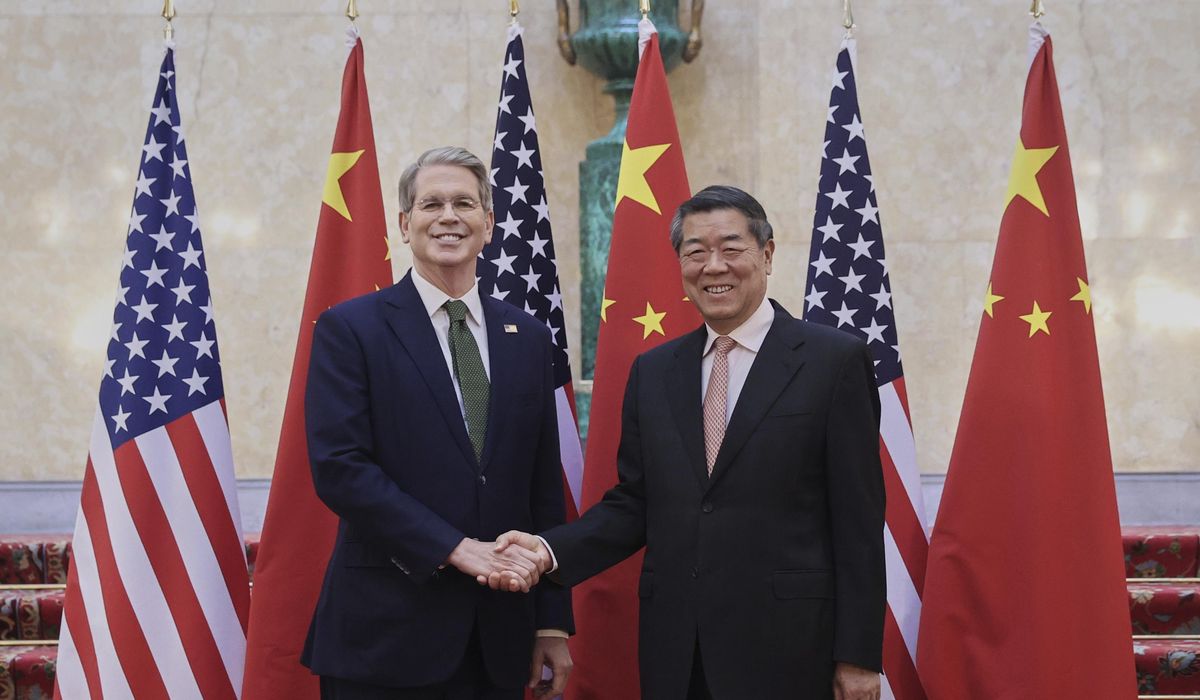


The U.S. and China are taking steps to implement a London trade framework that compels the Chinese side to release rare earth minerals while the American side lifts some tech restrictions.
The Chinese Commerce Ministry said it hopes both countries will continue to “meet each other halfway.”
“China will review and approve the export applications of controlled items that meet the conditions in accordance with the law,” the ministry said Friday. “The United States will cancel a series of restrictive measures taken against China accordingly.”
President Trump seemed to hint at follow-through on Thursday, saying at the White House that “we just signed with China yesterday.”
Treasury Secretary Scott Bessent and other top U.S. officials met with Chinese counterparts in mid-June to patch up fraying ties between the major economies.
Mr. Trump had unveiled a suite of tariffs against dozens of countries in early April, saying allies and foes alike took advantage of the U.S. market but didn’t reciprocate by letting in American products.
SEE ALSO: Nike soars on a production shift away from China, but it warns of a $1 billion tariff hit
Unlike other countries that came to the negotiating table, China retaliated against Mr. Trump’s tariffs by imposing hefty levies on U.S. goods in April, sparking a trade war.
A de-escalation meeting in May knocked down sky-high tariffs from both sides. The U.S. is charging a 30% tariff on Chinese goods, and China is putting a 10% tariff on American goods that cross its borders.
But both sides had gripes about the other nation’s behavior, sparking the follow-up meeting in London.
Securing licenses for rare earth minerals from China is the main win for the U.S. in the London framework.
One of the minerals, samarium, is used in heat-resistant magnets that are critical components of missiles and fighter jets.
The Chinese statement did not detail which minerals would be released and when, or what it will be receiving from the U.S. side. However, China expects to get relief from American export controls on high-tech goods, along with U.S. visas for its students.
“After the London talks, the teams of China and the United States maintained close communication,” the ministry in Beijing said Friday. “Recently, with approval, the two sides further confirmed the details of the framework.”
Mr. Trump and his team are racing against a July 8 deadline to strike trade deals with other trading partners. The White House has signaled an extension is possible, or Mr. Trump might reassign tariff levels on countries that don’t strike deals.
Mr. Trump says the tariffs are needed to recalibrate relationships that resulted in large trade deficits, or situations in which countries sell plenty of products in the American market but don’t buy nearly as much from U.S. producers.
• Tom Howell Jr. can be reached at thowell@washingtontimes.com.
